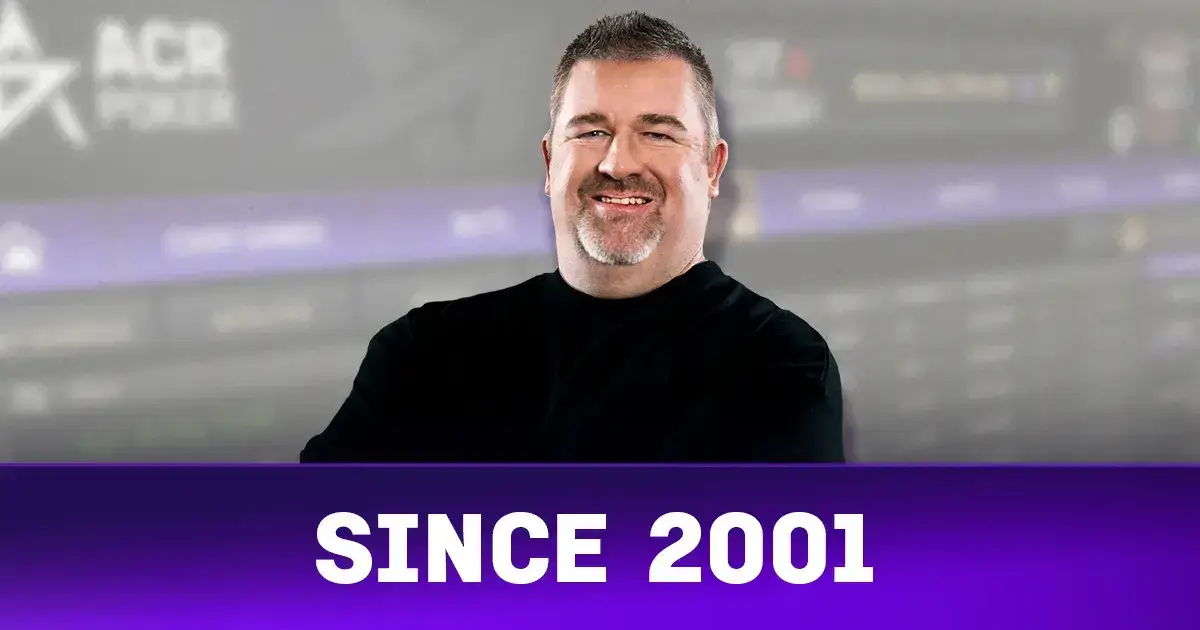
My Poker Origin Story: The Win That Changed Everything
Chris Moneymaker revisits the 2003 Main Event, adding the context television never showed
Life Before the Boom
In early 2003 Chris Moneymaker balanced an accounting job near Nashville with five-hour sessions of three-and-six-limit Hold’em at a local card room. Online he multitabbed only the tiniest stakes because the games felt safe for someone who had never flown to Las Vegas, let alone bought into a five-figure tournament.
“Poker was one hundred percent a hobby. I pictured a side hustle, but my biggest win in a month might cover dinner.”
At the time most Americans still viewed poker as smoky back-room gambling. Televised coverage was limited to a few late-night ESPN reruns. Moneymaker’s circle never imagined the game (or his role in it) was on the edge of global change.
The Accidental Satellite That Altered History
Online poker software in 2003 lacked today’s filters. Sit-and-gos, cash tables, and satellite qualifiers all appeared in one mixed list. If you saw a table nearly full you clicked fast or risked waiting an hour for the next one. That is how Moneymaker found himself in an eighty-six-dollar World Series satellite on a random Sunday.
“I thought I was entering a ten-dollar sit-and-go. By the time the first hand was dealt, I realized my mistake but decided to ride it out.”
He won the seat, then parlayed that into a larger satellite worth ten thousand dollars and a trip to Binion’s Horseshoe. Until that moment he had never competed in a live no-limit event larger than a bar-league freeroll.
Eight Long Days Inside Poker’s Pressure Cooker
The 2003 Main Event drew 839 entrants, almost double the previous record. Play began at noon and often ended after midnight. ESPN’s broadcast condensed those sessions to fit primetime, but the reality was closer to a grueling work shift on little sleep.
Moneymaker’s style, tight positions, small-ball pots, kept his stack intact through the early carnage. Yet every orbit felt heavier as legends like Doyle Brunson or Phil Ivey took adjoining seats. Confidence finally arrived in dramatic fashion.
The Johnny Chan Hand
One of the most pivotal hands of Chris Moneymaker’s 2003 Main Event run came against none other than Johnny Chan, two-time world champion, Poker Hall of Famer, and one of the most feared players in the field. The moment Moneymaker knocked him out, the mood around the table, and in Moneymaker’s own mind, shifted.
“Johnny Chan was considered the perfect poker player at the time. Knocking him out gave me a ton of confidence.”
The hand began with Moneymaker open raising from the button holding A♥ 8♥. Chan called from the big blind with K♥ 5♥, and the flop came down 4♥ A♦ 3♥. Both players had flopped strong hands, Moneymaker with top pair and the nut flush draw, Chan with a live gut-shot straight draw and a king-high flush draw of his own.
Chan checked, Moneymaker put out a continuation bet, and Chan responded with a check-raise. Moneymaker thought it through, then moved all-in. Chan quickly called. It was a massive pot and a defining moment.
The turn brought the 9♥, completing a flush for both players, but with drastically different implications. Chan had made a king-high flush. Moneymaker had the nuts.
The river changed nothing. Just like that, Chan was eliminated, and Moneymaker’s stack swelled.
It wasn’t just the chips. That hand was a turning point. For the first time, Chris wasn’t just surviving or holding his own. He was knocking out champions, winning the kind of high-pressure spots that define a tournament run.
The knockout of Johnny Chan was more than symbolic. It proved that Moneymaker belonged in the field, not as an amateur hanging on, but as a serious threat to win it all.
“That was when I started to really believe,” Moneymaker recalls. “I knew I could play with these guys, and I started to think: maybe this isn’t just a run—maybe I can win the whole thing.”
A Championship Sealed with Relief
The final table was scheduled for prime-time Monday, but play the night before dragged past 4 a.m. By the time heads-up began there had been almost 120 hours of poker in eight days. Chris faced off heads-up against high-stakes pro Sam Farha. On the final hand, Farha raised with J♠ 10♦, and Chris called with 5♦ 4♠. The flop came J♠ 5♠ 4♣ — Farha hit top pair, but Chris had flopped two pair. A check-raise led to Farha moving all-in, and Chris snap-called. The turn brought the 8♦, and the river was the 5♥, giving him a full house and the title.
“Relief was the first emotion. Thrilled of course, but mostly relieved the marathon was done.”
Moments later he posed with bricks of cash, a strap of gold on his wrist, and a grin that would soon be broadcast worldwide.
Shock and Celebration Back Home
ESPN’s overnight edit aired just days later. Nashville co-workers who had seen “Moneymaker, C” on the office softball roster suddenly watched him win 2.5 million dollars.
“Shocked, excitement, disbelief—take your pick,” he laughs. “We threw a massive party the day I got home.”
Local news vans lined his driveway. Interview requests poured in. The quiet accountant next door was now the face of a fast-growing pastime.
The Lesson He Would Bottle for Every New Player
“Pros do not get better cards and they cannot read your soul. They simply make better decisions.”
Moneymaker believes newcomers obsess over tells and luck while ignoring bankroll management and position. He attributes his run not to psychic reads but to folding marginal spots for six straight days, then seizing aggression at the right moments.
How Winning Changed His Appetite for Risk
Conventional wisdom says a windfall breeds larger bets. For Moneymaker the opposite happened.
“Before I won I’d fire big on sports trying to get rich quick. After I had money I was less likely to gamble above my means.”
He now treats poker like any business: analyze ROI, cap exposure, invest gains cautiously.
The Persistent Myth of Pure Luck
Fans often claim he simply rode a heater. He concedes a healthy run of cards but notes that ESPN aired perhaps 5 percent of the hands played.
“People think it was five lucky hands. They forget it was eight straight days of difficult decisions.”
That distinction matters; luck opened doors, judgment kept them open.
What I Wish Every New Player Understood
If I could pass one lesson from my run to a new poker player, it would be this: Pros don’t get better cards than you. They just make better decisions.
You don’t need to bluff more or spot crazy tells. You need to play smart, stay in control, and make better choices over the long run. That’s how you win.
The Game Keeps Changing
There’s no single opportunity I grabbed back then that’s still paying off today. Poker has changed a lot over the last 20 years. It’s evolved. The formats, the players, the tools, it’s all different now.
But what hasn’t changed is the mindset you need to succeed. Patience, discipline, and decision-making will always be at the core of winning poker.
The Story Behind the Story
People often talk about the “Moneymaker Effect” like it was lightning in a bottle. But behind that story is a week of mental focus, pressure, and effort.
I didn’t sit down at that table and run over a bunch of pros. I showed up, made the best decisions I could, and stayed in the game. That’s what really changed everything.
Ready to start your own $50 or $86 story?
Chris Moneymaker’s mis-click became a legend because he followed it with eight days of sound decisions. Your journey might begin with a micro-stakes satellite on Americas Cardroom. Deposit, register for a qualifier, and see where disciplined play can take you.

